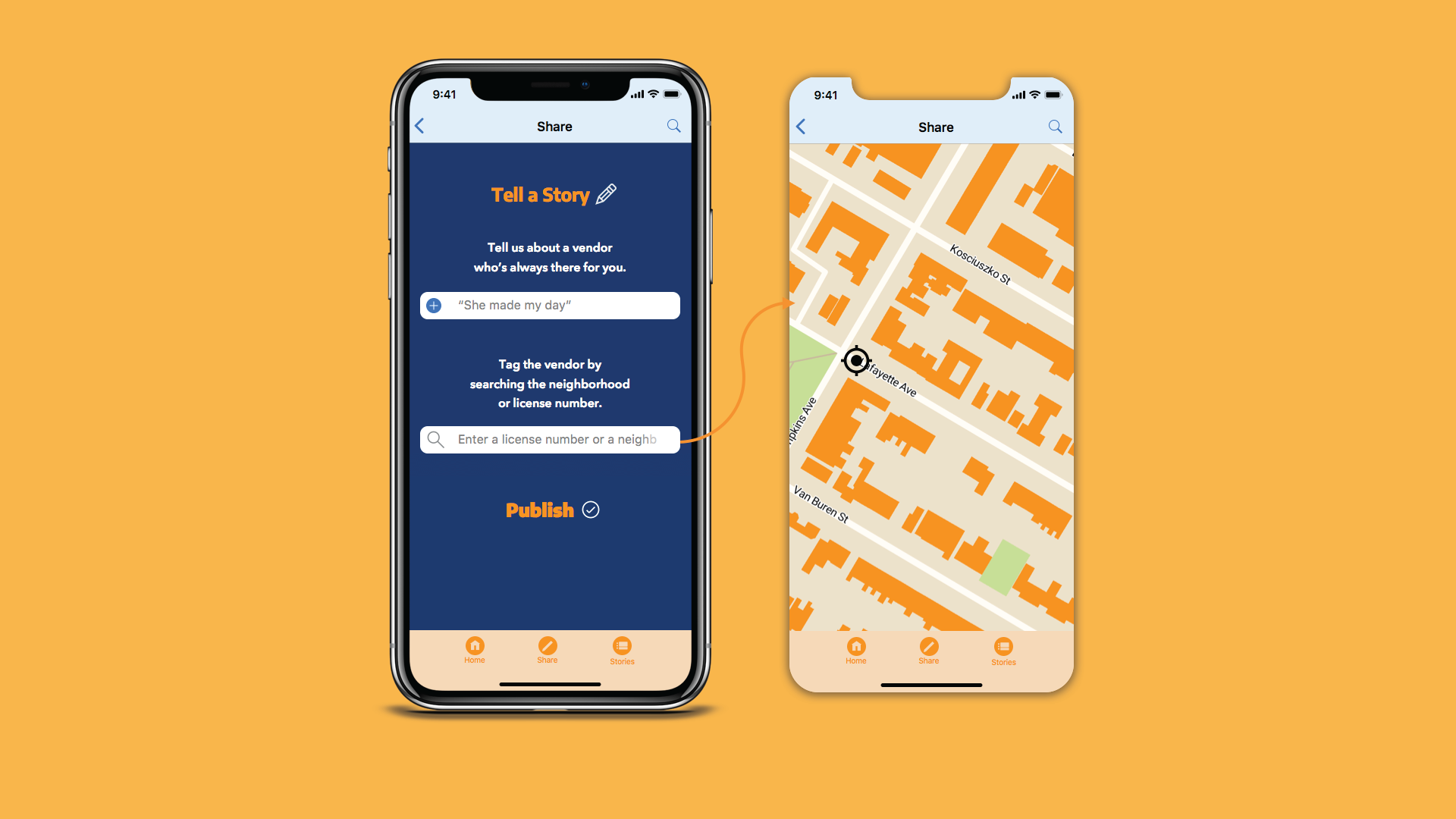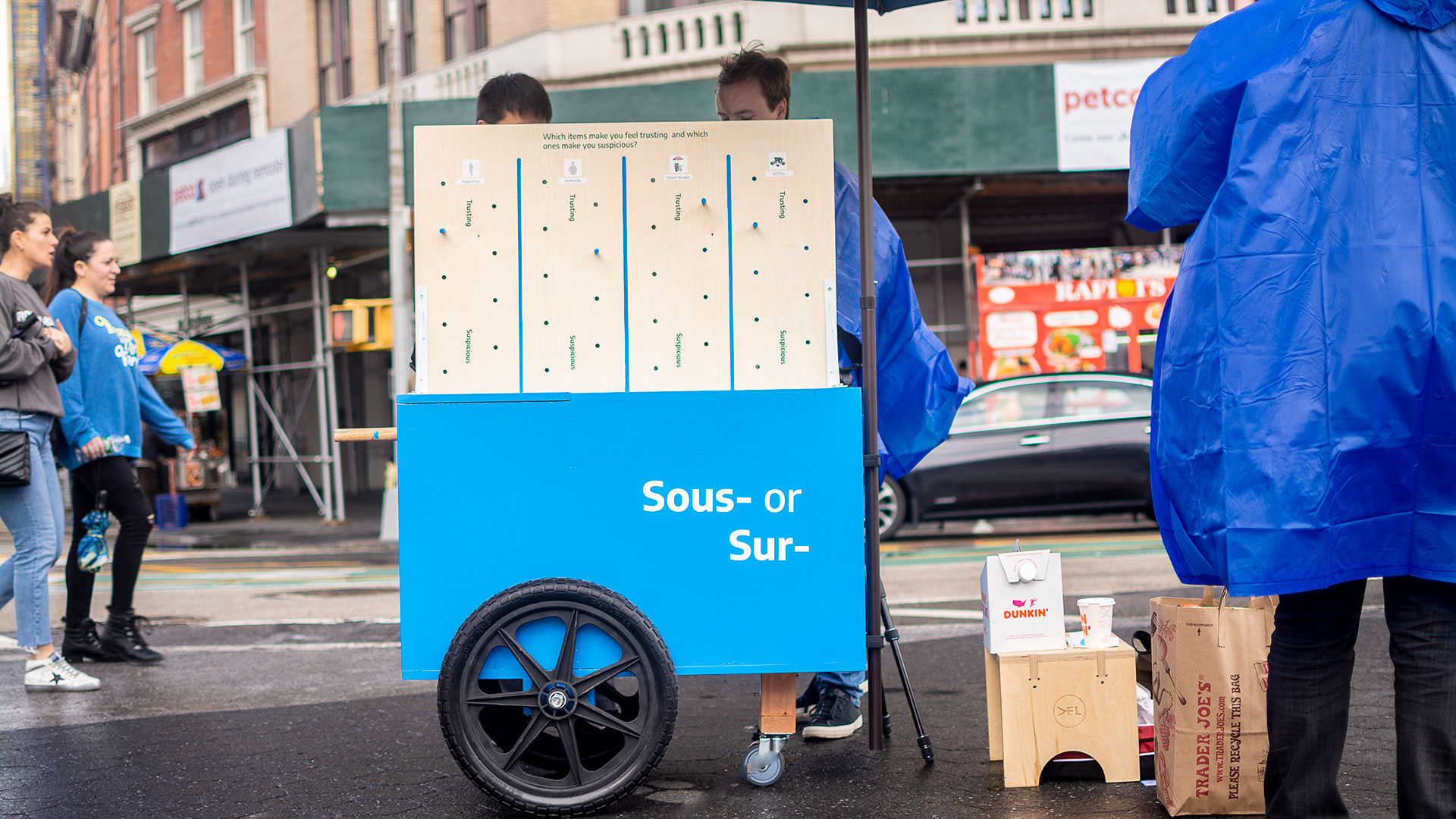FANTASIES OF OUR INDEPENDENCE: The Role of Civil Society in the Postmodern City
For his thesis, Fantasies of Our Independence: The Role of Civil Society in the Postmodern City, Ben Bartlett spent this year studying Western urbanism and the future of cities. After speaking with experts in urban planning, urban mobility, and counterterrorism, he determined that safety, and the feeling of safety, shape the policy and planning of urban systems. Throughout his research he uncovered two different approaches to creating safer public spaces that will determine how futures cities function and treat their citizens, and designed both speculative and pragmatic interventions to respond to each.
Ben believes that reconsidering public safety roles could create a future in which people feel safe through interdependent resources in public spaces, whereas implementing policies and products that control citizens would lead to a future city in which people retreat into “secure” silos. This creates weak social resilience, to the detriment of society’s long-term safety.
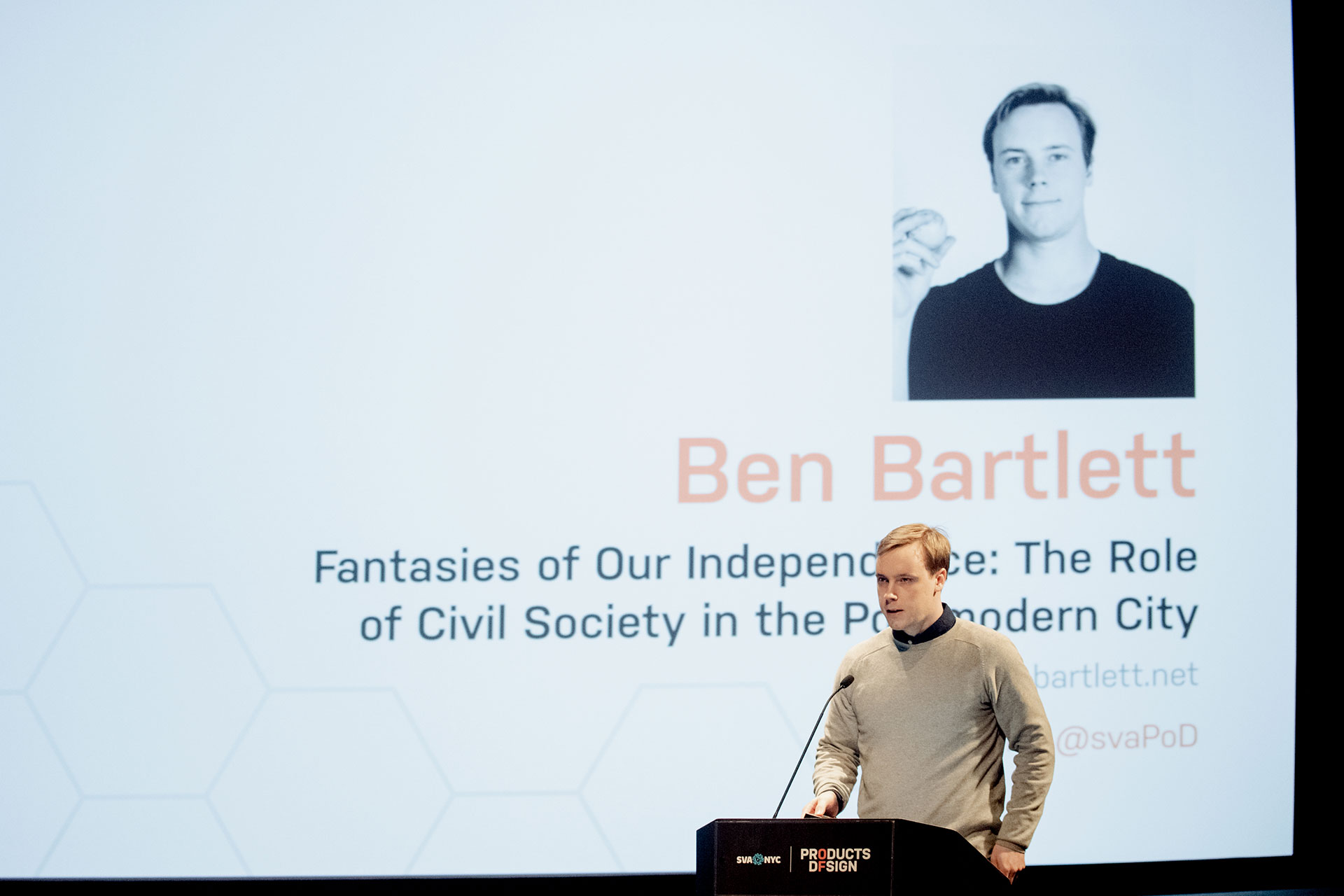
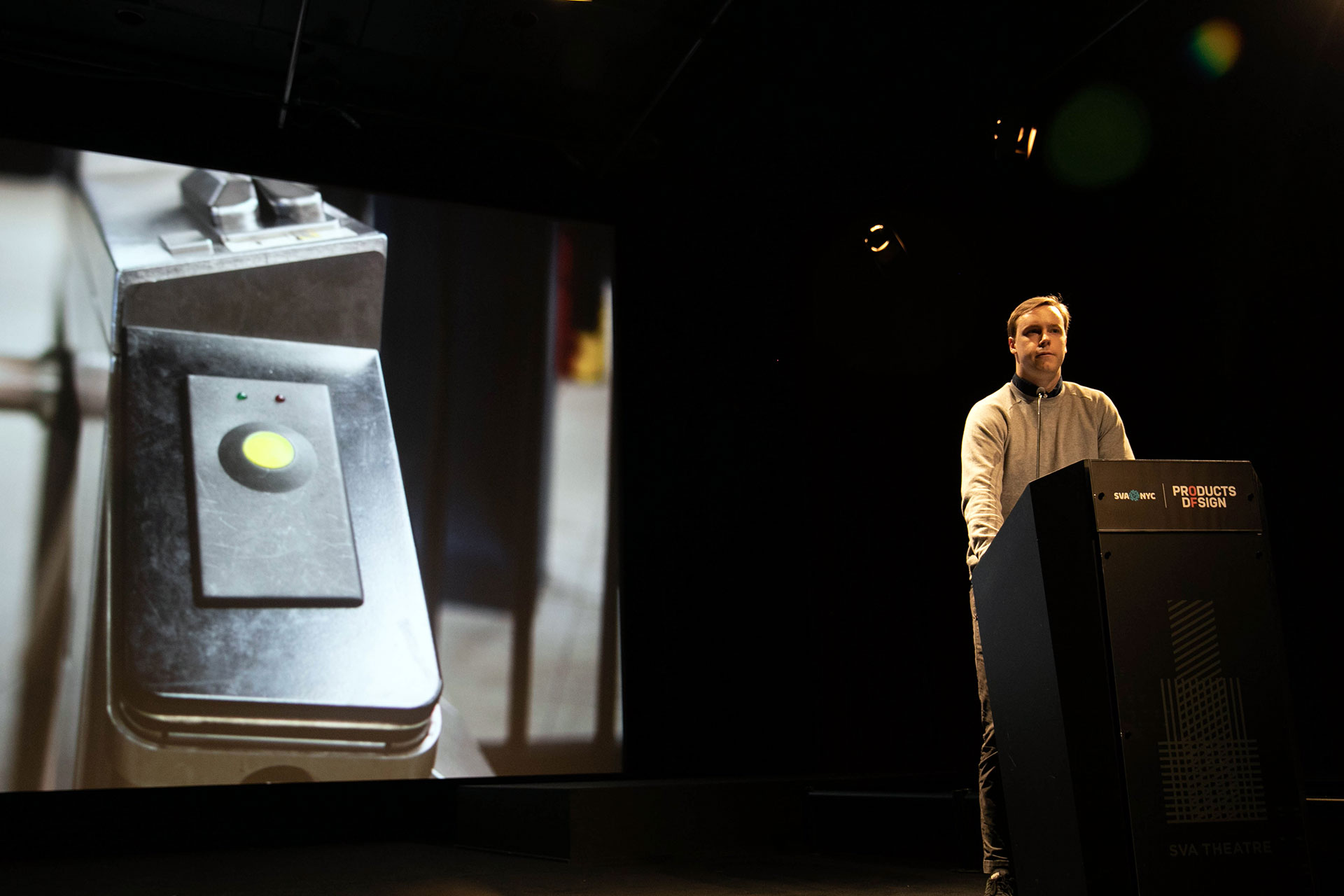
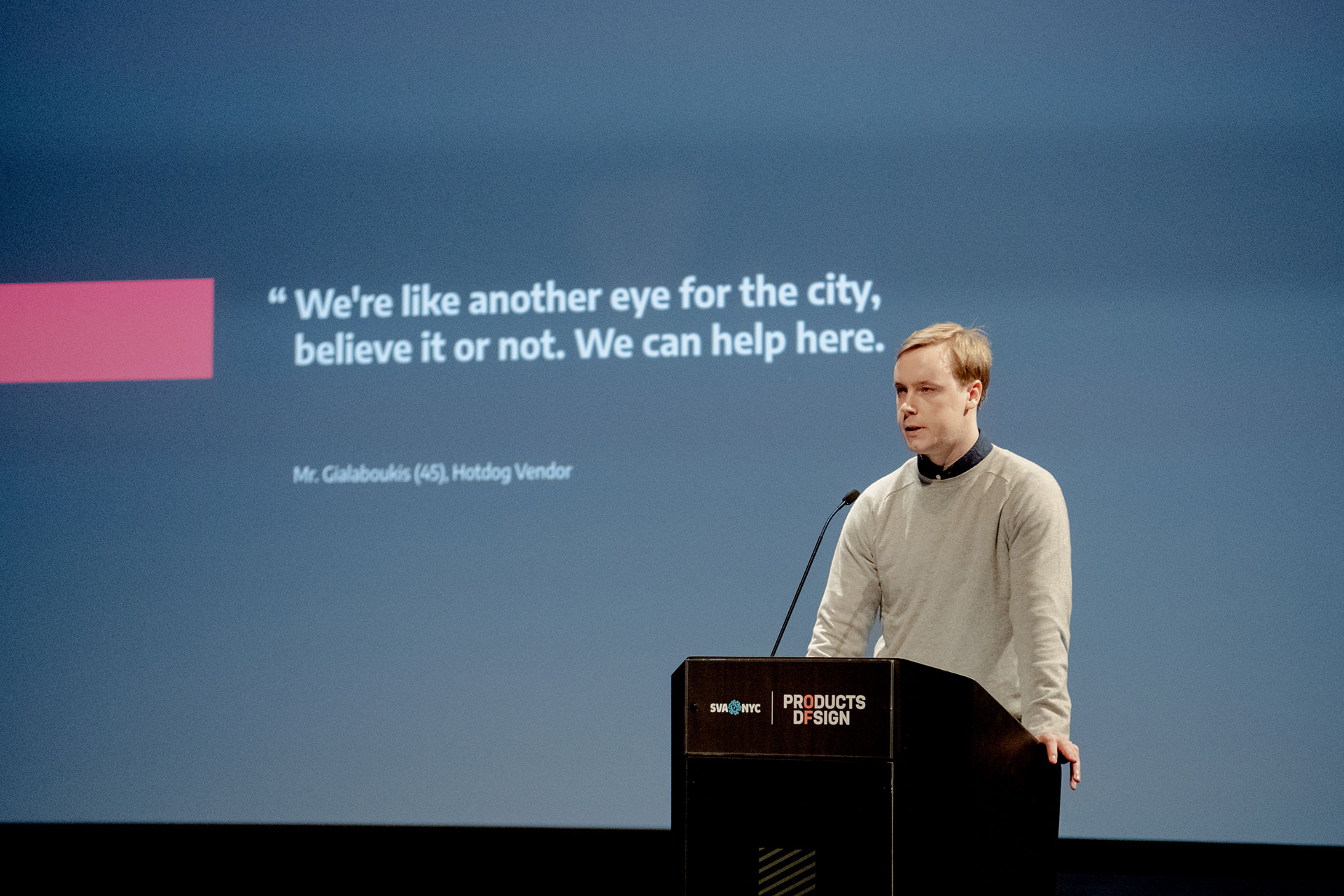
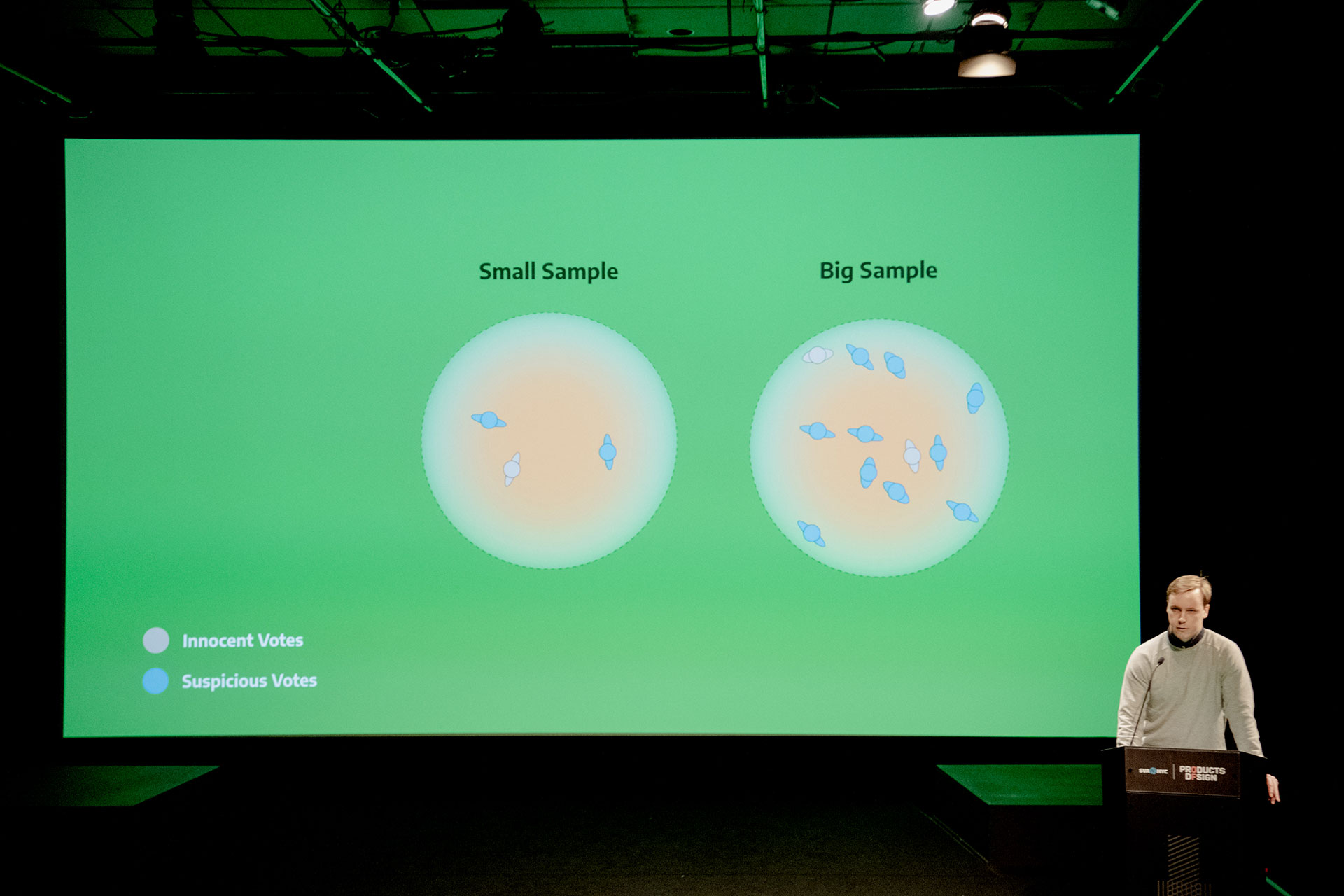
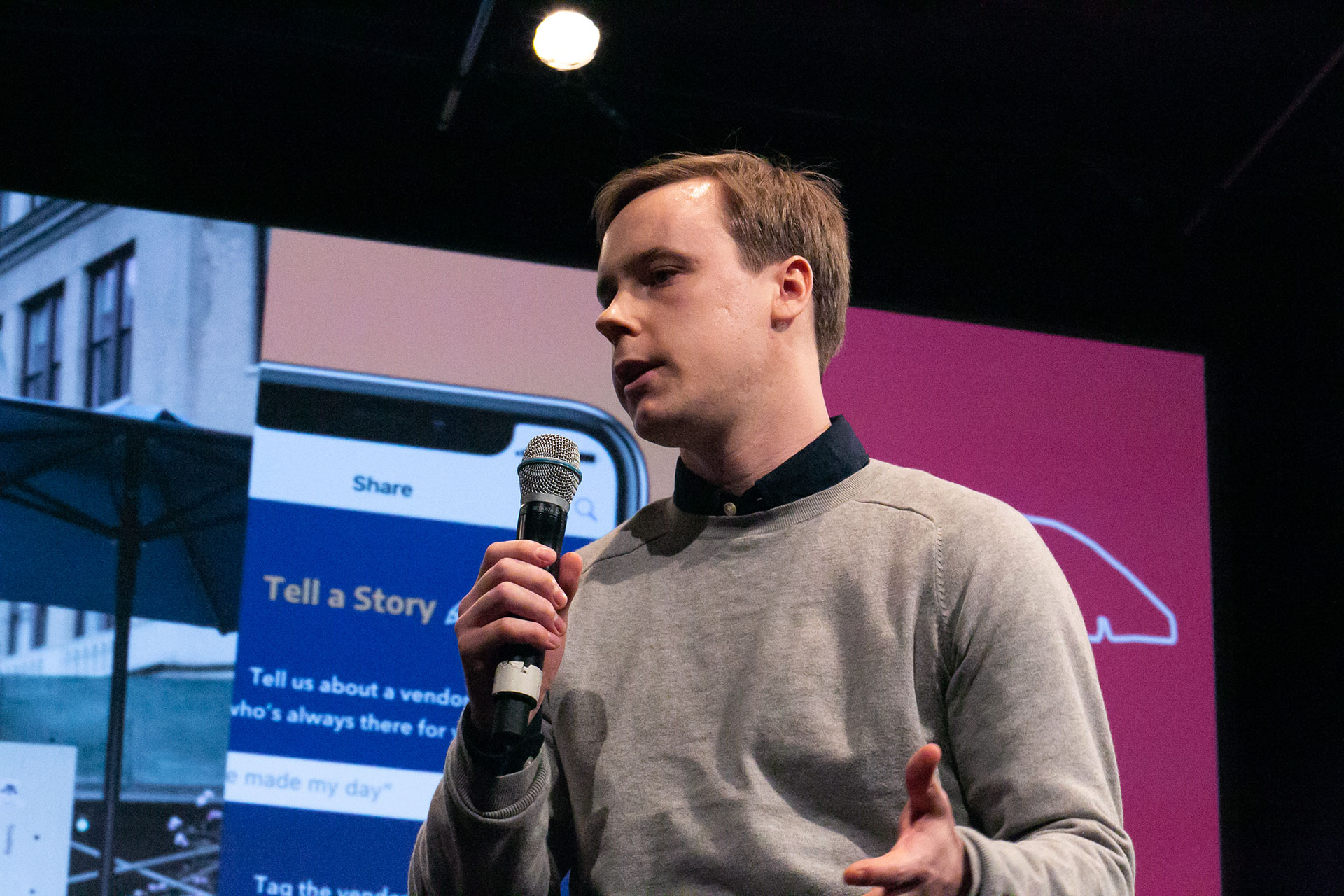
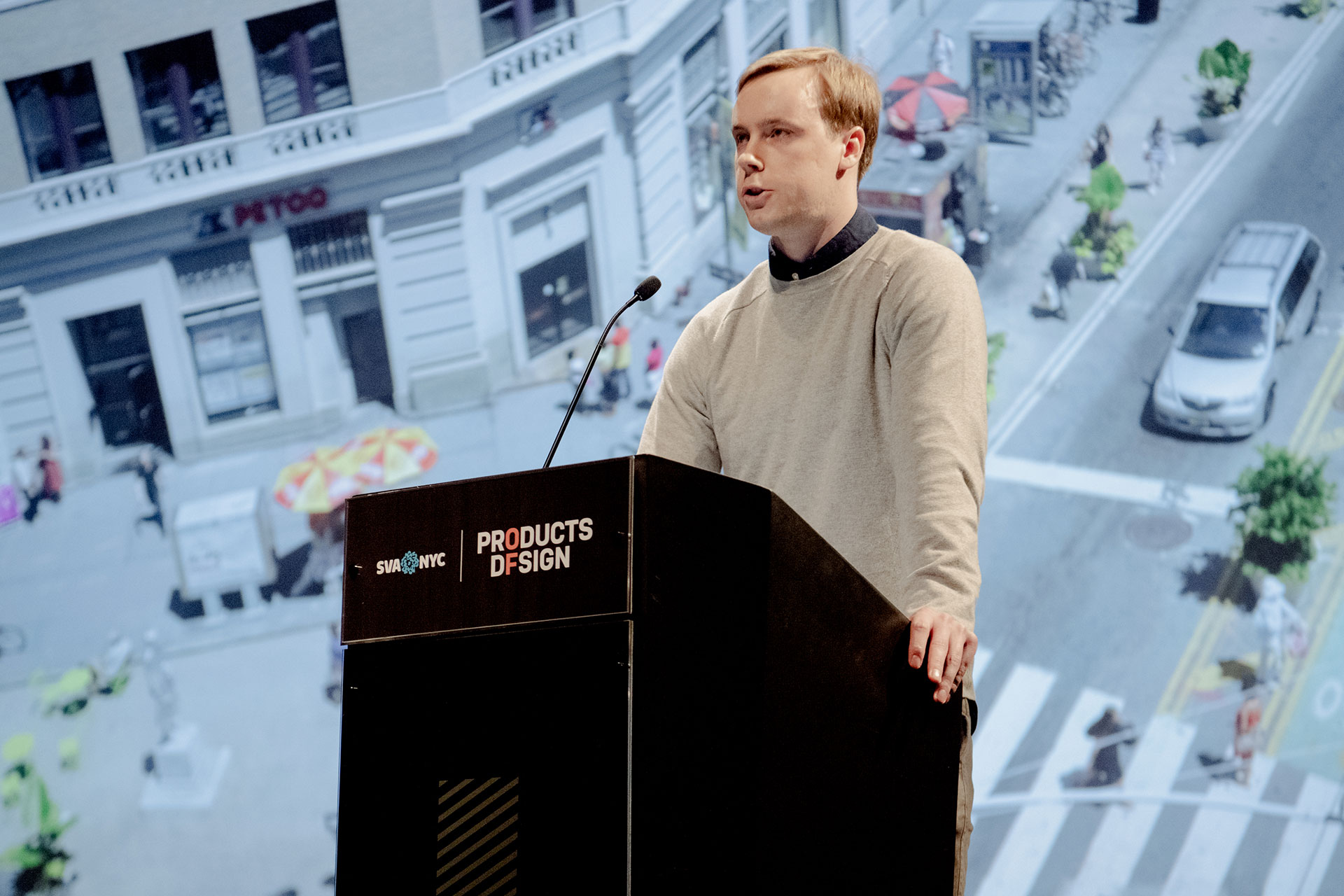
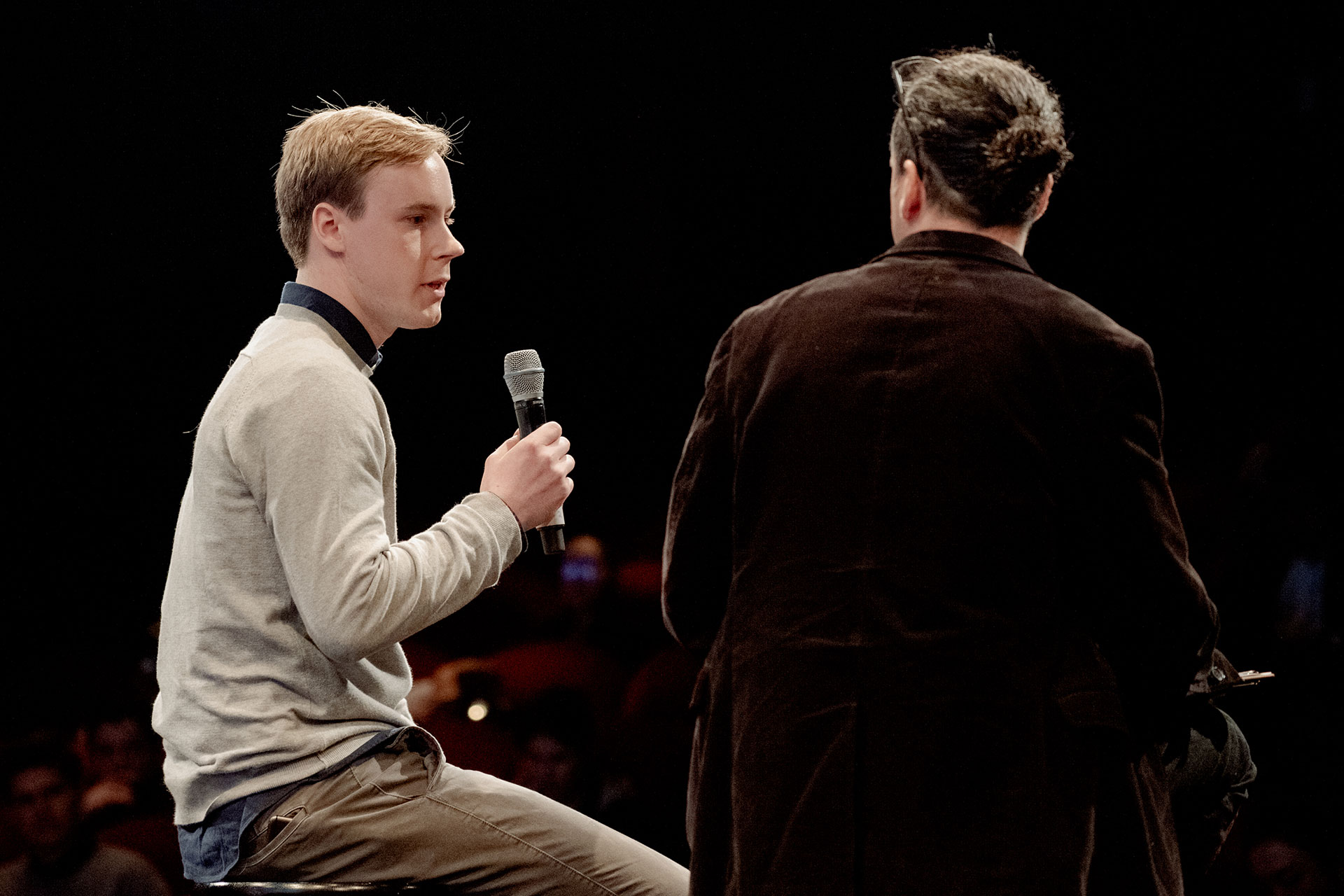
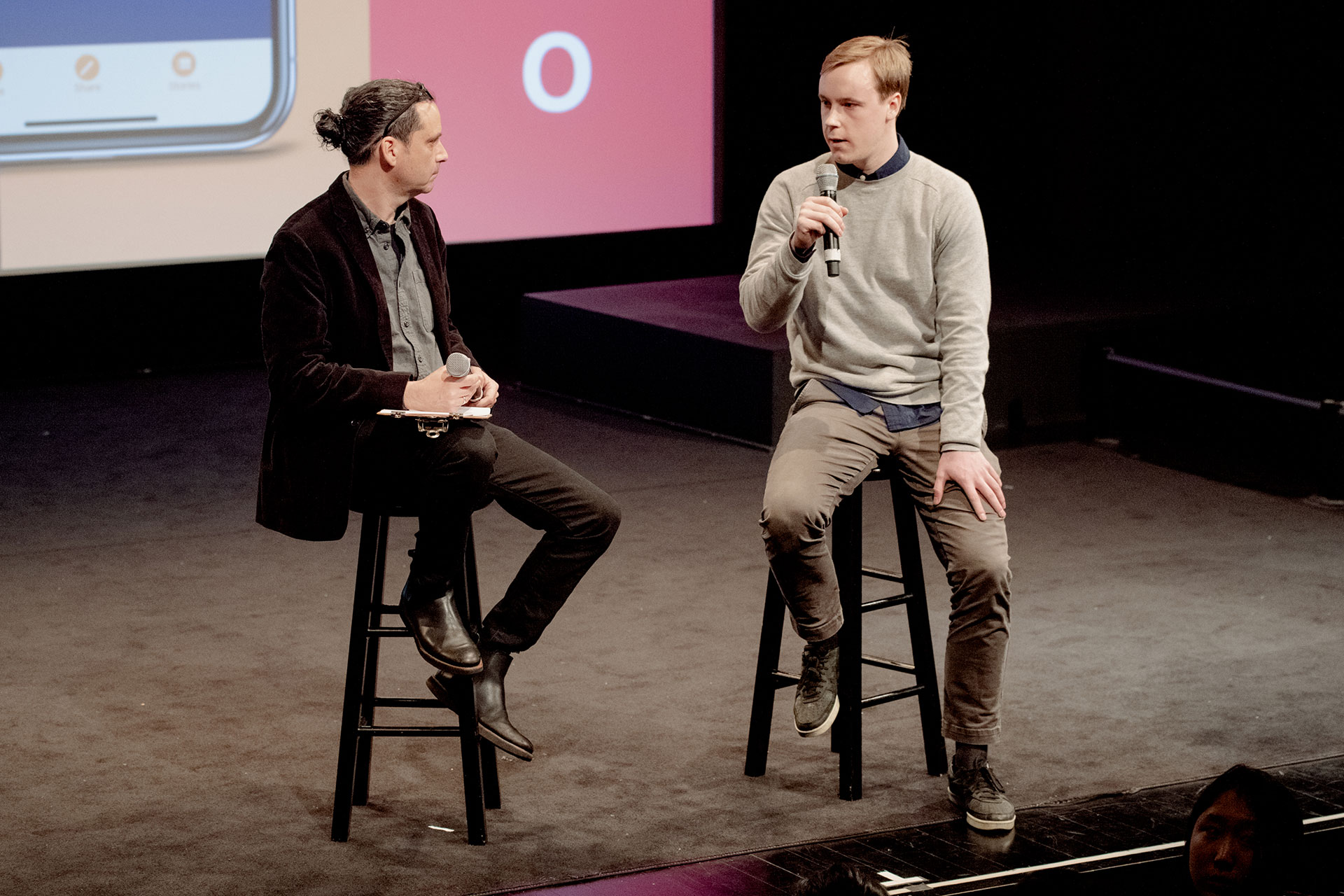
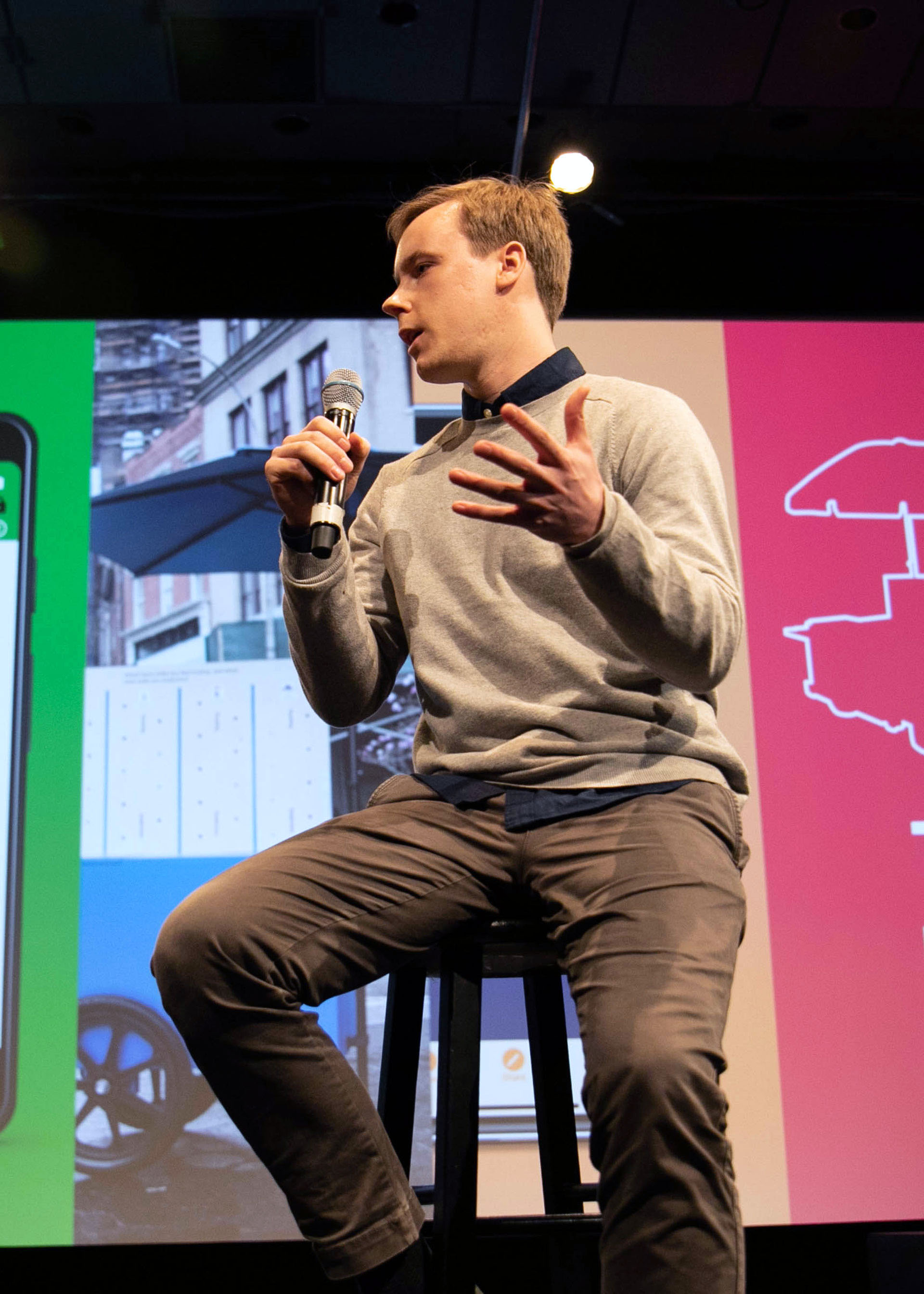
Beat
Beat is an app that promotes street vendors as trusted resources in New York City neighborhoods. It has three main features: Share, Learn, and Help. People share their positive experiences with vendors in the app and geotag the vendor to promote them. Others can read and learn about the vendors who serve their neighborhoods. Beat also lets vendors feature a short biography in their profile and describe any challenges they’re enduring, such as unfair fines. People can donate or offer their specialty services to help, such as legal counsel.
Sous- or Sur-
Surveillance: an observation from a position of power or authority.
Sousveillance: an observation not from a position of power or authority.
Sous- or Sur- was an interactive game in which participants ranked how trusting or suspicious they were of four different public space apparatuses, represented as icons on a pegboard: Pedestrians, Authority Figures, Street Vendors, and Surveillance Cameras. After inserting four blue-tipped dowels into the pegboard to rank each icon on a scale of trusting to suspicious, participants walked around the pushcart, where they could see their answers on the other side. They were then given new information about each of the icons, and the opportunity to adjust one of their answers by inserting a new, red-tipped dowel. Each participant then chose a Sous- or Sur- sticker as a vote of confidence in either peer support mechanisms or institutional ones in public spaces.
Metrispace
“Surveillance is also dangerous in formal democracies. One reason is that yesterday’s extreme cases often become today’s standard practice.” —Pierre Lemieux, Economist
Metrispaces are a cautionary piece of speculative infrastructure, denoting public spaces throughout the city whose access is controlled by the NYC government. To enter, your fingerprint must be registered in a government database. As you prepare to access a Metrispace, press your thumb down on the fingerprint scanner, wait for the green light, and then proceed to enter. In the name of safety, the government is privy to the whereabouts of any and all citizens who use a Metrispace.
To learn more about Ben Bartlett’s work, take a look at his projects in more detail at benbartlett.net.













